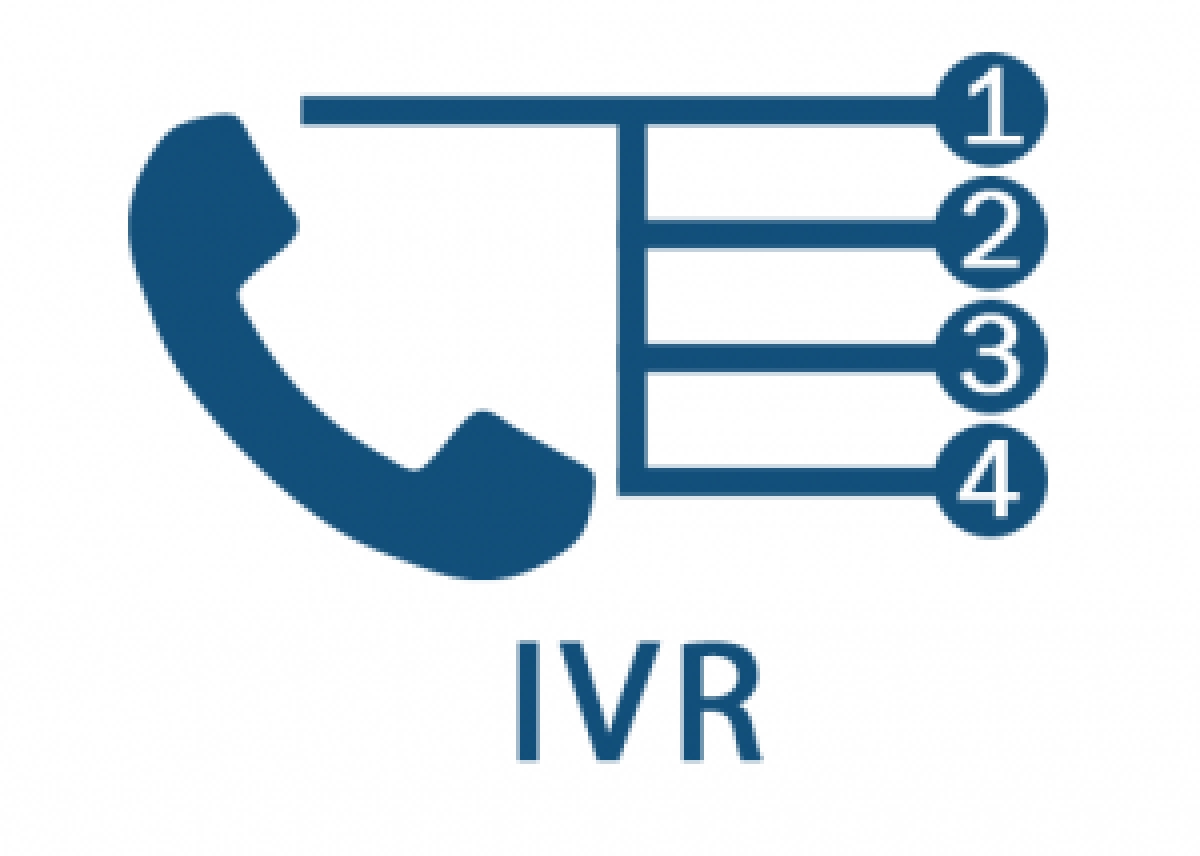
An Interactive Voice Response (IVR) system is an automated telephony solution that allows callers to interact with your business using voice commands or keypad inputs. Choosing the right IVR system for your business can significantly improve customer service, enhance productivity, and reduce operational costs. However, with so many options available, finding the best IVR system for your specific needs can be challenging.
In this blog post, we’ll explore the essential factors you should consider when choosing the best IVR for your business, ensuring that it aligns with your goals and customer service strategy.
What is IVR, and Why Does Your Business Need It?
Before diving into the selection process, it’s important to understand how IVR works and why it’s crucial for businesses.
An IVR system allows callers to navigate through a series of pre-recorded voice menus by using either voice commands or pressing keys on their phone. For example, a customer may be prompted to “Press 1 for Sales, Press 2 for Support.” IVR systems can be used to handle a variety of tasks such as answering common queries, routing calls to specific departments, collecting payments, or even processing orders.
Benefits of IVR:
- Improved customer service: Automates the initial phase of customer interaction, leading to faster resolutions.
- Cost efficiency: Reduces the need for human agents to handle simple tasks, freeing up resources for more complex queries.
- 24/7 availability: Many IVR systems can operate around the clock, providing support even outside of business hours.
- Enhanced professionalism: A well-designed IVR gives a business a polished and professional image, especially for handling high call volumes.
Now, let’s look at the factors you should consider when choosing the right IVR system for your business.
1. Understand Your Business Needs
Why it’s important: Different businesses require different IVR functionalities. A small eCommerce business might need a simple call-routing system, while a large enterprise might need advanced features like customer authentication or payment processing.
What to consider:
- Call volume: Estimate the average number of calls your business receives daily. If you receive high volumes of calls, look for an IVR system that can efficiently handle and route these calls.
- Complexity: Determine how complex your IVR system should be. Simple IVR systems just route calls to departments, while more advanced systems offer self-service options like balance inquiries, order status, or bill payments.
- Industry-specific needs: Industries like healthcare, finance, or travel may require specialized IVR features like secure payment gateways or HIPAA compliance.
Recommendation: Start by outlining the specific requirements of your business and list the key tasks you expect the IVR system to handle. Knowing this will help you narrow down your options based on functionality.
2. Ease of Customization
Why it’s important: The IVR system should be flexible and customizable, allowing you to tailor the voice menus, scripts, and call flows to suit your specific business requirements.
What to look for:
- Drag-and-drop call flow editor: Look for an IVR system that offers a visual call flow designer, which makes it easy to set up and modify the IVR without requiring technical expertise.
- Custom prompts: Make sure you can easily record or upload custom voice prompts that align with your brand’s tone and messaging.
- Multi-language support: If your business serves customers who speak different languages, ensure the IVR system supports multiple languages and allows easy switching between them.
Recommendation: Choose an IVR system that makes customization simple, without needing significant programming skills. The ability to quickly modify menus and flows will allow your business to stay agile as customer needs evolve.
3. Integration with CRM and Other Business Tools
Why it’s important: Integrating your IVR with other business tools like Customer Relationship Management (CRM) software, helpdesk solutions, and analytics platforms will enhance the overall efficiency and customer experience.
What to look for:
- CRM integration: The IVR system should integrate seamlessly with your CRM, enabling it to pull customer data in real-time. This allows for more personalized experiences, such as greeting customers by name or providing account-specific information.
- Helpdesk integration: If you use helpdesk software, make sure the IVR can escalate and route calls directly into your ticketing system, making it easier for agents to track and resolve issues.
- Analytics and reporting tools: Choose an IVR that provides detailed call analytics, including call volume, wait times, drop-off rates, and customer satisfaction, allowing you to optimize the system for better performance.
Recommendation: Ensure the IVR system you choose integrates with the tools you already use, as this will improve efficiency and provide a more personalized experience for customers.
4. Self-Service Capabilities
Why it’s important: Many customers prefer self-service options that allow them to quickly resolve their issues without needing to speak to an agent. An IVR with self-service capabilities can streamline this process and enhance customer satisfaction.
What to look for:
- Self-service options: Look for an IVR system that can handle common tasks like checking account balances, tracking orders, or resetting passwords without human intervention.
- Voice recognition: Modern IVR systems often come with voice recognition technology, which allows customers to speak commands rather than pressing buttons. This creates a smoother and faster experience.
- Payment processing: If your business involves transactions, ensure that your IVR can securely process payments and provide automated receipts or confirmations.
Recommendation: Choose an IVR system that allows customers to self-serve as much as possible, reducing wait times and improving their overall experience.
5. Call Routing Efficiency
Why it’s important: Efficient call routing ensures that customers are connected to the right department or agent quickly, reducing frustration and increasing satisfaction.
What to look for:
- Advanced call routing: Ensure the IVR system offers intelligent call routing, which can direct calls based on factors like customer history, query type, or agent availability.
- Skill-based routing: Look for systems that support skill-based routing, which ensures that calls are directed to agents with the expertise to handle specific issues.
- Queue management: A good IVR should allow you to manage and prioritize queues effectively, ensuring that high-priority calls are handled quickly.
Recommendation: Invest in an IVR system with advanced call routing capabilities to improve both the customer and agent experience.
6. Cost and Scalability
Why it’s important: Your IVR system should fit within your budget and have the flexibility to scale as your business grows.
What to look for:
- Transparent pricing: Look for IVR providers that offer clear pricing models—whether it’s per minute, per user, or based on call volume. Be aware of any additional charges for customization or integration.
- Scalability: As your business grows, your IVR system should be able to handle an increase in call volume without compromising performance. Make sure the system can scale effortlessly as you add more users or locations.
- Cloud vs. on-premises: Decide whether you need a cloud-based IVR (more flexible and scalable) or an on-premises solution (typically offers more control but may require higher upfront costs).
Recommendation: Opt for an IVR system that fits within your current budget but offers flexible pricing and scalability as your business expands.
7. Security and Compliance
Why it’s important: IVR systems handle sensitive customer information, so it’s crucial to ensure that the platform is secure and compliant with industry standards.
What to look for:
- Data encryption: Make sure that your IVR system encrypts data to protect sensitive customer information during transmission and storage.
- Compliance: Depending on your industry, your IVR system may need to comply with specific regulations, such as GDPR, HIPAA, or PCI DSS for handling credit card transactions.
- User authentication: The IVR should offer secure customer authentication options, such as PIN codes, biometric voice recognition, or two-factor authentication.
Recommendation: Choose a provider that prioritizes security and compliance, especially if your IVR system will handle sensitive customer data.
8. User Experience (UX) Design
Why it’s important: A well-designed IVR system can either enhance or frustrate your customers. It’s essential to ensure that the call flows are intuitive and easy to navigate.
What to look for:
- Clear menu options: Ensure the IVR menus are straightforward and don’t overwhelm customers with too many options. Aim for no more than 3-4 choices per level.
- Short call paths: Reduce the number of steps required to reach the desired destination or resolution.
- Testing and feedback: Look for systems that offer customer feedback options after each call, allowing you to continuously improve the user experience.
Recommendation: Invest time in designing an intuitive and customer-friendly IVR system, ensuring a smooth experience for your callers.
Conclusion
Choosing the best IVR system for your business requires a deep understanding of your specific needs, customer expectations, and technical requirements. From customization and integrations to scalability and security, each factor plays a critical role in finding the right solution.
Whether you’re a small business looking for a simple call-routing system or a large enterprise in need of advanced features like voice recognition and payment processing, there’s an IVR solution that fits your needs. Take the time to assess the options, test out different platforms, and invest in the one that will best serve your customers and help your business grow.
What IVR system are you considering for your business? Share your experiences or questions in the comments below!



